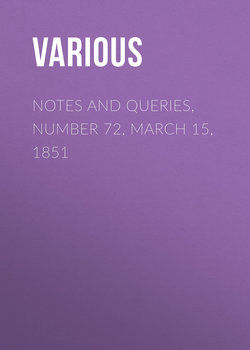Читать книгу Notes and Queries, Number 72, March 15, 1851 - Various - Страница 2
Notes
INEDITED POETRY, NO. II
ОглавлениеCHORUS
(Harleian MSS., No. 367. fo. 154.)
"Is, is there nothing cann withstand
The hand
Of Time: but that it must
Be shaken into dust?
Then poore, poore Israelites are wee
Who see,
But cannot shunn the Graue's captivitie.
"Alas, good Browne! that Nature hath
No bath,
Or virtuous herbes to strayne,
To boyle2 thee yong againe;
Yet could she (kind) but back command
Thy brand,
Herself would dye thou should'st be unman'd.
"But (ah!) the golden Ewer by [a] stroke,
Is broke,
And now the Almond Tree
With teares, with teares, we see,
Doth lowly lye, and with its fall
Do all
The daughters dye, that once were musicall.
"Thus yf weake builded man cann saye,
A day
He lives, 'tis all, for why?
He's sure at night to dye,
For fading man in fleshly lome3
Doth rome
Till he his graue find, His eternall home.
"Then farewell, farewell, man of men,
Till when
(For us the morners meet
Pal'd visag'd in the street,
To seale up this our britle birth
In earth,)
We meet with thee triumphant in our mirth."
Trinitäll Hall's Exequies.
Now, to what does Hall refer in the third stanza, in his mention of the almond-tree? Is it a classical allusion, as in the preceding stanza, or has it some reference to any botanical fact? I send the ballad, trusting that as an inedited morsel you will receive it.
Kenneth R. H. Mackenzie.
[We do not take Hall here to be the name of a man, but Trinity Hall at Cambridge.]
2
The reader will recognise the classical allusion.
3
Loam, earth; roam.
